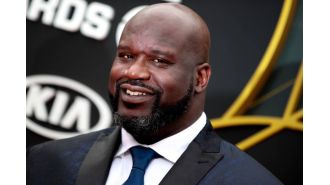Some of the Country’s Worst Prisons Have Escaped Justice Department Action
Prisons in Alabama are so bad, the Department of Justice said they violate Eighth Amendment protections against cruel and unusual punishment. We found prisons in Mississippi that may be even worse.

Mississippi has saved a lot of money on its prisons over the past several years. But as the experiences of next-door neighbor Alabama show, rampant violence and understaffing can eventually draw scrutiny from the U.S. Justice Department, with potentially costly consequences.
In April, the Justice Department concluded that “there is reasonable cause to believe that the men’s prisons [in Alabama] fail to protect prisoners from prisoner-on-prisoner violence and prisoner-on-prisoner sexual abuse, and fail to provide prisoners with safe conditions.” It demanded that the state fix the problems or face possible litigation.
Alabama’s prisons are so bad, they violate the U.S. Constitution’s guarantees against cruel and unusual punishment, the Justice Department has said.
Mississippi’s prisons may be as bad, or even worse, the Mississippi Center for Investigative Reporting and ProPublica reported. The ratio of prisoners to guards at South Mississippi Correctional Institution is 23 to 1, several times higher than Alabama’s, which stands at 9.9 to 1.
FAMM, a national nonprofit group advocating criminal justice reform, has called on the Justice Department to investigate Mississippi’s prisons.
Kevin Ring, president of the Washington, D.C.-based nonprofit, said the conditions remind him of prisons found in third-world nations. “They’re uninhabitable,” he said. “This is why we need the government to step in.
“When there is no oversight and accountability, this is what you get.”
The Department of Justice did not return an email requesting comment.
Rivers Ormon, press secretary for Mississippi Gov. Phil Bryant, a Republican, said public safety remains a prime concern for the governor. She noted that the inmate population in state prisons fell by 11% in the year after the state passed prison reform in 2014.
“Certain challenges have made managing the system more difficult,” Ormon said in a statement, adding that Bryant has confidence in his team at the Department of Corrections.
(Ormon’s statement failed to note that the prison population is increasing again and is poised to top the 2014 figure in 2020.)
Prison guards in Mississippi are the lowest paid in the nation. Corrections Commissioner Pelicia Hall asked state lawmakers to give guards a significant pay raise, but that was rejected in favor of a more modest increase. The starting pay for guards is so low, those with families are eligible for food stamps.
Hall said she’s doing the best she can with the resources she has.
Alabama’s recent history offers lessons in what may happen if conditions in Mississippi don’t improve.
The Justice Department’s investigation of Alabama was triggered by allegations that officers were having sex with inmates. Investigators visited four Alabama prisons and talked to 55 employees and 270 prisoners.
“Alabama is deliberately indifferent to that harm or serious risk of harm and it has failed to correct known systemic deficiencies that contribute to the violence,” Justice Department investigators said in their report. “The deplorable conditions within Alabama’s prisons lead to heightened tensions among prisoners. And, as a result, the violence is spilling over so that it is affecting not only prisoners, but [Alabama Department of Corrections] staff as well.”
Separately, Alabama is being sued over its treatment of mentally ill inmates. A federal judge has ordered the state to add as many as 2,000 new officers in the next several years.
Alabama Gov. Kay Ivey, a Republican, has called for Alabama to build new facilities to replace its “deplorable,” “horrendous” and “inadequate” prisons. The latest cost for replacing three men’s prisons? $900 million.
Ross Parker Simons, a lawyer from Pascagoula, Mississippi, who represents prisoners in the state, said if the Justice Department conducted an investigation here similar to the one it did in Alabama, he expects the department would give the same notice to Mississippi’s governor.
David Fathi, director of the American Civil Liberties Union National Prison Project, said Mississippi will have to confront its problems soon. “A state can’t continue to operate unconstitutional prisons. Sooner or later, the bill will come due.”






